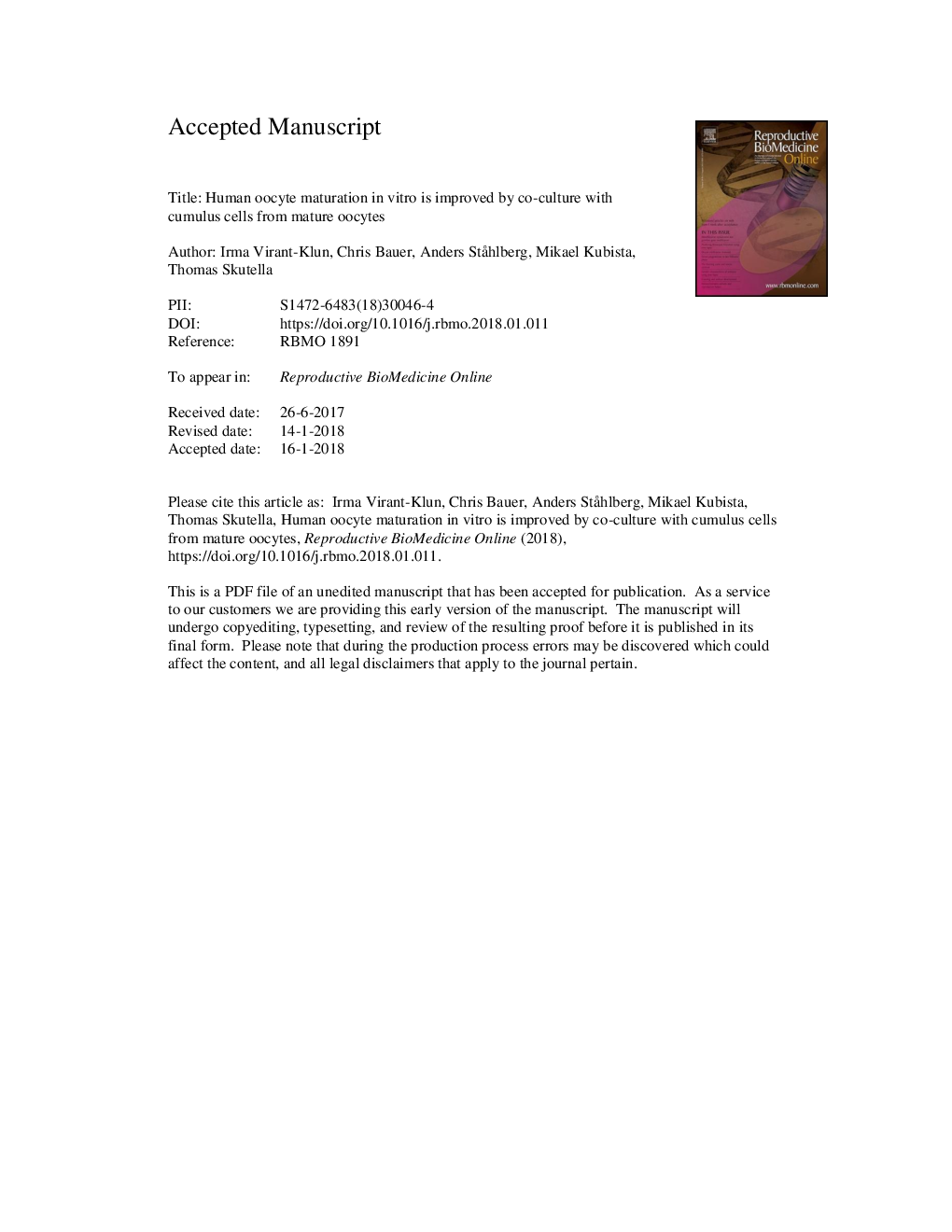| Article ID | Journal | Published Year | Pages | File Type |
|---|---|---|---|---|
| 8783852 | Reproductive BioMedicine Online | 2018 | 56 Pages |
Abstract
The conventional method of human oocyte maturation in vitro in the presence of gonadotrophins continues to be a relatively low-success procedure in the assisted conception programme owing to suboptimal maturation conditions in the absence of an ovarian 'niche' and poor understanding of this procedure at the molecular level in oocytes. In this study, the gene expression profiles of human oocytes were analysed according to their manner of maturation: in vivo (in the ovaries) or in vitro (matured either by the conventional method or by a new approach - co-cultured with cumulus cells of mature oocytes from the same patient). Our results show that the in-vitro maturation procedure strongly affects the gene expression profile of human oocytes, including several genes involved in transcriptional regulation, embryogenesis, epigenetics, development, and the cell cycle. The in-vitro maturation of oocytes co-cultured with cumulus cells from mature oocytes provides an ovarian 'niche' to some degree, which improves oocyte maturation rates and their gene expression profile to the extent that they are more comparable to oocytes that naturally mature in the ovarian follicle.
Related Topics
Health Sciences
Medicine and Dentistry
Obstetrics, Gynecology and Women's Health
Authors
Irma Virant-Klun, Chris Bauer, Anders Ståhlberg, Mikael Kubista, Thomas Skutella,
